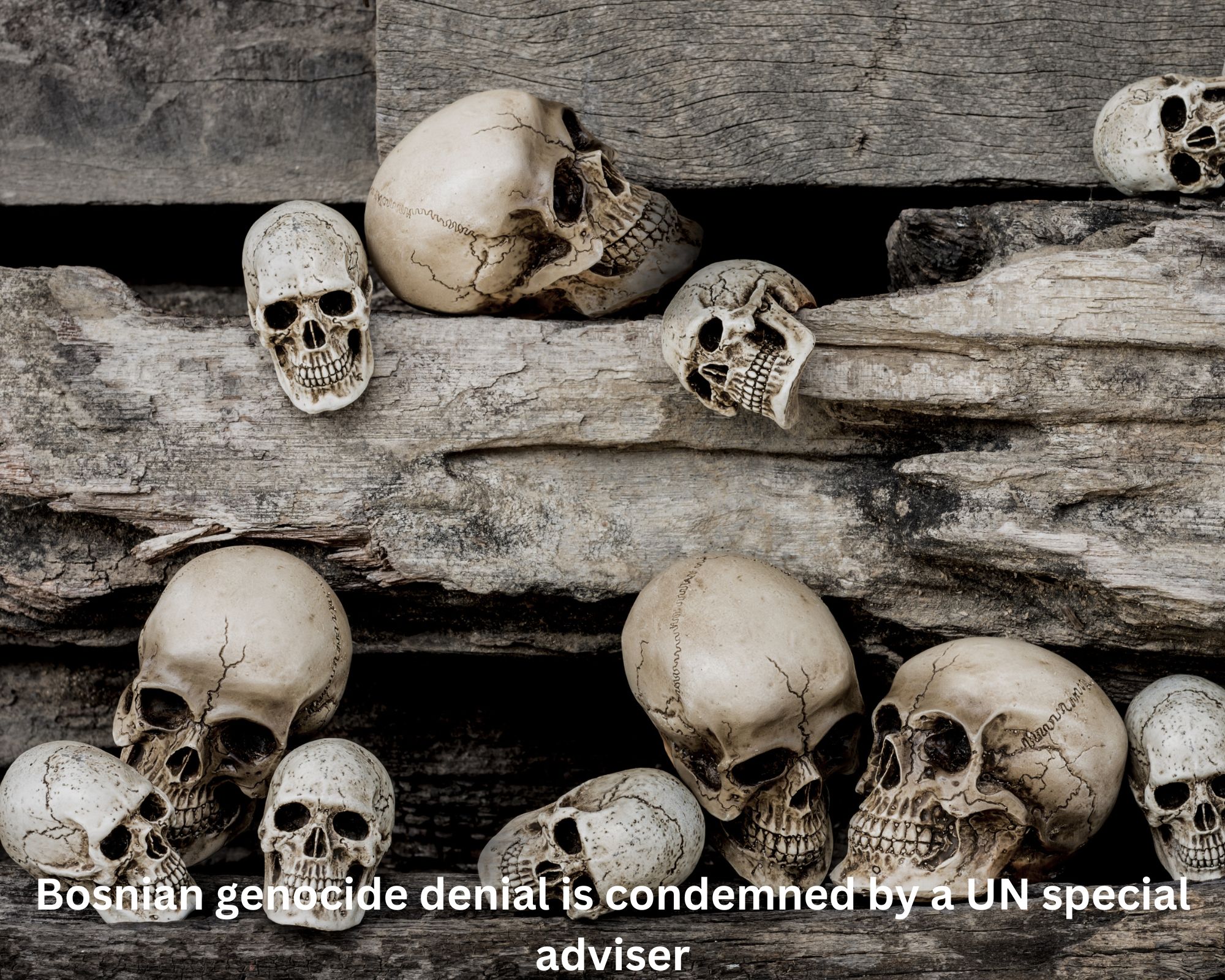Summary:
-
She was worried about claims of revisionism about atrocities that happened during the three-year conflict that began in 1992.
-
She pointed to recent incidents after a decision to change the law about the Srebrenica-Potoari Memorial and Cemetery for the Victims of the 1995 Genocide.
-
“The International Criminal Tribunal for the Former Yugoslavia has made it clear that a genocide happened in Srebrenica,” she said.
-
She acknowledged the efforts of Bosnia and Herzegovina’s survivors and other civil society actors, saying they are combating the denial of genocide, war crimes, and crimes against humanity and fostering lasting peace and reconciliation throughout the nation.
-
Fight against hate speech.
She was worried about claims of revisionism about atrocities that happened during the three-year conflict that began in 1992. She pointed to recent incidents after a decision to change the law about the Srebrenica-Potoari Memorial and Cemetery for the Victims of the 1995 Genocide.
“The International Criminal Tribunal for the Former Yugoslavia has made it clear that a genocide happened in Srebrenica,” she said.
The dignity of the victims and survivors, whose loved ones were slain just because of who they were, is insulted by the denial of the genocide.
Peace is built by civil society.
She praised the work of Bosnia and Herzegovina’s survivors and other members of civil society, saying that they are fighting against the denial of genocide, war crimes, and crimes against humanity and promoting peace and reconciliation across the country.
She asked all political, religious, and community leaders to support these efforts and set an example by using their voices to encourage a constructive dialogue based on trust, respect, and dignity. She said these people are working hard to ensure that hate, division, and denial have no place in the future.
Fight against hate speech.
She says that the UN policy paper, Combating Holocaust and Genocide Denial, which came out in 2022, gives a plan for what to do.
“The most severe cases of genocide and Holocaust denial can be an incitement to discrimination, hostility, or violence, as well as genocide,” the policy paper said. “History has shown us that this kind of violence often involves denying past wrongdoing and is almost always preceded by hate speech online and offline,” the statement says.
She added that the study includes advice and suggestions for genocide denial for important actors like governments, the UN system, and social media firms.

